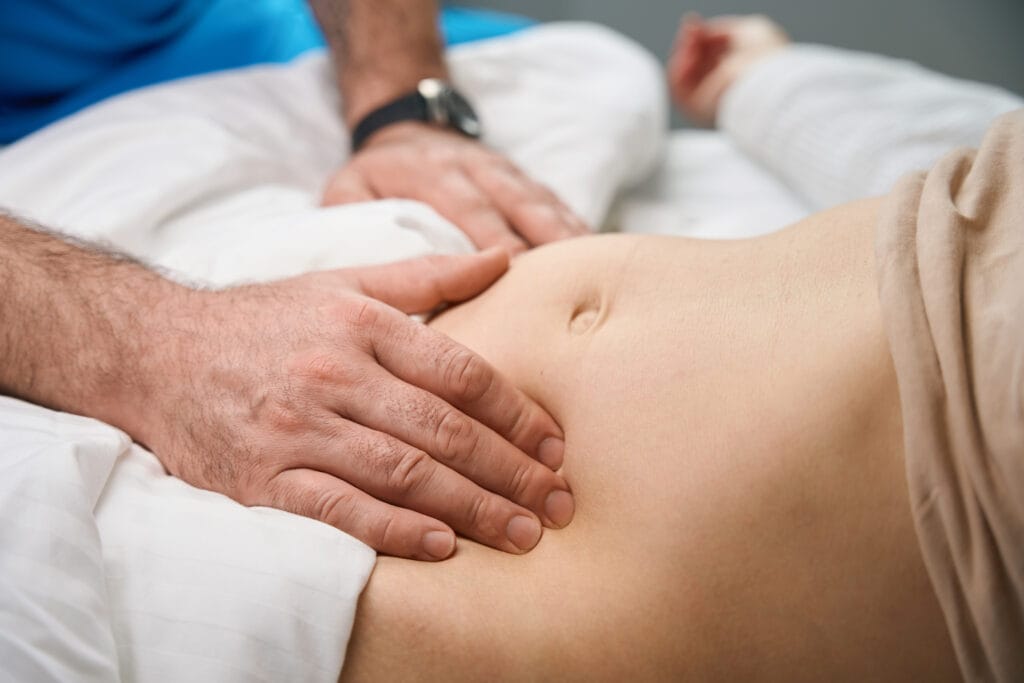Is it better to do a single session or do it regularly?
When someone first approaches Thai massage, they're often looking for quick relief: back pain, pent-up tension, stress that won't go away... And that's totally fine. Often, A single session already produces a very positive effect, both physical and emotional. But if what we're looking for is a deeper and more lasting change, then the key is in the frequency of getting a Thai massage,
What most people look for when they get a Thai massage
In my practice, most people who come for the first time do so with one of these three objectives:
- Relieve pain (low back pain, neck pain, muscle strain, etc.)
- Relax deeply after a period of high stress or anxiety
- “Try something new” that helps them reconnect with their body
And it's good to start there. The funny thing is that, after feeling the effects of the first session, many of these people realize that There is more to it than just relaxing or releasing a contractureThey begin to notice that their body lightens, that they sleep better, that they breathe differently, that there is a new mental clarity.
That's when they start to wonder: How often should I do this?
The value of continuous treatment vs. spot relief
A single session can unlock something important, but The true potential of Thai massage appears with continuityWhen we work the body progressively, respecting its rhythm and needs, we achieve:
- Release deep and old tensions, not just those of the moment
- Re-educate posture and body movement
- Strengthen the body-mind connection, improving stress management
- Maintaining energetic and emotional balance over time
What begins as a “one-time cure” can become a maintenance and prevention toolJust like you exercise, eat healthy, or go to the physiotherapist before an injury, Thai massage can be part of your routine to maintain long-term well-being.
Factors influencing the ideal frequency
One of the most frequently asked questions I get in consultations is:
"How often should you get a Thai massage?", when “Should I come and get a massage?”
And my answer always starts with "it depends." Because treating a person with chronic pain isn't the same as treating someone seeking to prevent stress, or someone who needs emotional balance. Thai massage adapts to the vital and physical moment of each person, and that is why the ideal frequency must also be personalized.
Current physical and emotional state
The body speaks, and if we listen carefully, it tells us what it needs. Some factors that greatly influence this are:
- Chronic pain or stiffness: If you have been experiencing discomfort for a while, your body will probably need more frequent sessions at first, until it is unblocked.
- Constant fatigue or accumulated stress: When the nervous system is overloaded, regular support is needed to restore balance.
- Intense emotional processes (grief, breakups, anxiety, etc.): The body often retains emotions, and massage helps release them gradually. In these cases, continuity is very valuable.
Daily activity level, stress and lifestyle
- If you have a demanding physical jobIf you play sports or spend long periods of time standing or sitting, your body is likely to accumulate tension more quickly.
- If your routine is more mental or sedentaryStress can manifest itself in the form of inner tension, insomnia, or anxiety. Massage will help you unwind and release that invisible overload.
- If your life is very fast-paced, Thai massage can be your monthly or biweekly “reset” moment to not to lose balance in the midst of the daily rhythm.
Objective of massage: prevention, treatment or maintenance
This is one of the most important points. There are people who come to:
- Treat a specific ailment (and there you may need weekly sessions for a few weeks)
- Prevent pain or tension from returning (ideally 1 or 2 times a month)
- Maintain a general state of physical and emotional balance (1 session per month may be enough)
In short, the ideal frequency It's not marked by a calendar, it's marked by your bodyAnd the more you connect with him, the more clearly he'll tell you when it's time to come back.
Recommended frequency for getting a Thai massage according to each case
Although every body is unique, over time I've seen certain patterns repeat themselves. Here's a practical guide, based on my experience in counseling, to help you navigate what you're experiencing right now.
To relieve chronic pain or stiffness
Recommended: 1 session per week for 3-4 weeks
Afterwards, if the body responds well, it can be spaced out to every 15 days or once a month.
Because?
The body needs continuity to release deep tensions and correct postural patterns. It's like going to the physiotherapist: if you go just once, you improve, but if you go with rhythm, you transform.
To balance emotions or accumulated stress
Recommended: Every 10-15 days at first
You can then maintain a monthly session as a self-care routine.
Because?
When anxiety, insomnia, or mental exhaustion strikes, the nervous system needs constant support to emerge from its state of alertness. Thai massage creates that safe space where the body can gradually release what it's holding back.
To improve energy and maintain well-being
Recommended: 1 time a month
Ideal as part of a comprehensive health routine.
Because?
Even if there is no obvious discomfort, the body accumulates silent tension. A monthly session helps prevent blockages, keep energy flowing and balance body and mind before problems arise.
For athletes or people with continuous physical wear and tear
Recommended: Every week or every 15 days
Depending on the level of physical and mental demand.
Because?
The body, subjected to training, exertion, or demanding work routines, needs active recovery. Thai massage helps prevent injuries, maintain flexibility, and regulate internal energy.
This adaptable approach is one of the great values of Thai massage: It is not applied in series, it is adjusted to what each person experiences, feels and needs.And that makes it a very powerful therapeutic tool, both for healing and for caring.
Is once a month enough?
The short answer is: Yes, in many cases once a month may be enough., as long as the goal is to maintain well-being, prevent stress, or support emotional balance. But, as I always say, it depends on your body and the stage of your life you're going through.
When a monthly session may be enough
A monthly frequency usually works very well when:
- Preliminary unblocking work has already been done., and the body is in balance.
- There is no severe pain or constant discomfort.
- The goal is prevent relapses or keep the energy flowing.
- You want to have a fixed space for self-care within your routine.
It's like a monthly "tune-up": your body appreciates it, your nervous system resets, and you prevent stress or tension from accumulating.
Many of my patients come in every 4 weeks, even without any specific ailments, and notice how their bodies feel looser, they sleep better, and they perform better without much effort.
Signs that your body is asking you to come back
Sometimes you don't need to look at the calendar. Just listen to how you're feeling:
- Do you feel more tense, irritable, or exhausted for no apparent reason?
- Do you have trouble breathing deeply or concentrating?
- Do you have that feeling that “something isn’t right”?
- Do you notice that you are sleeping poorly again or that you wake up more tired?
These are subtle signs that the body needs to be taken care of, even if there's no pain. And Thai massage can help prevent it from becoming something more serious.
How to get the most out of your Thai massage
Thai massage doesn't end when the session ends, and the frequency of getting a Thai massage depends on that. In fact, The following days are key to integrating everything the body has released., unlocked or started to mobilizeIf you accompany the process with small daily gestures, you'll notice that the benefits last longer and become more profound.
Here are some recommendations that I usually give to my patients:
Stretch gently daily
You don't need to do advanced yoga or spend an hour on the floor. With 10-15 minutes of conscious mobility a day you can keep your body loose and sen open.
Simple movements such as twists, side bends, leg stretches and chest opening help a lot to the energy keeps flowing.
Breathe consciously
One of the greatest allies of Thai massage is deep breathing.
Take a few minutes each day to breathe with your abdomen, in silence. This activates the parasympathetic system, relaxes the body and maintains the state of presence achieved during the session.
Hydrate and eat lightly after the massage
After releasing tensions and unblocking the sen, it's good help the body eliminate toxinsDrinking water or herbal teas and avoiding heavy meals for at least a few hours will facilitate this natural cleansing process.
Listen to your body's signals
Sometimes, after a massage, emotions, mood swings, or even new physical sensations may arise. Don't be alarmed. It's part of the process. The body is integrating.
Give him space to express himself without forcing it, and you will see how little by little everything finds its place.
Make Thai massage a ritual, not an emergency resource
The more you make it a regular practice, The less you need to “repair” and the more you can prevent and sustain well-beingThai massage is like a body reset: the more you respect and listen to it, the more it gives back to you.
Frequently get a Thai massage, with awareness
There is no single answer to the question “How often should I get Thai massage?”. The ideal frequency It is not on a fixed calendar, but on each person's ability to listen to their body. and meet their needs honestly.
Sometimes it will be once a week, when something deep needs to be unlocked.
Other times, a monthly session will be enough to maintain well-being.
And at certain times, your body may ask you to stop… or move more.
The important thing to keep in mind is that Thai massage is not only a tool to relieve pain, but a practice of maintenance, prevention and personal connectionl.Make Thai massage part of your regular self-care It's a way of loving you without waiting to break you.

